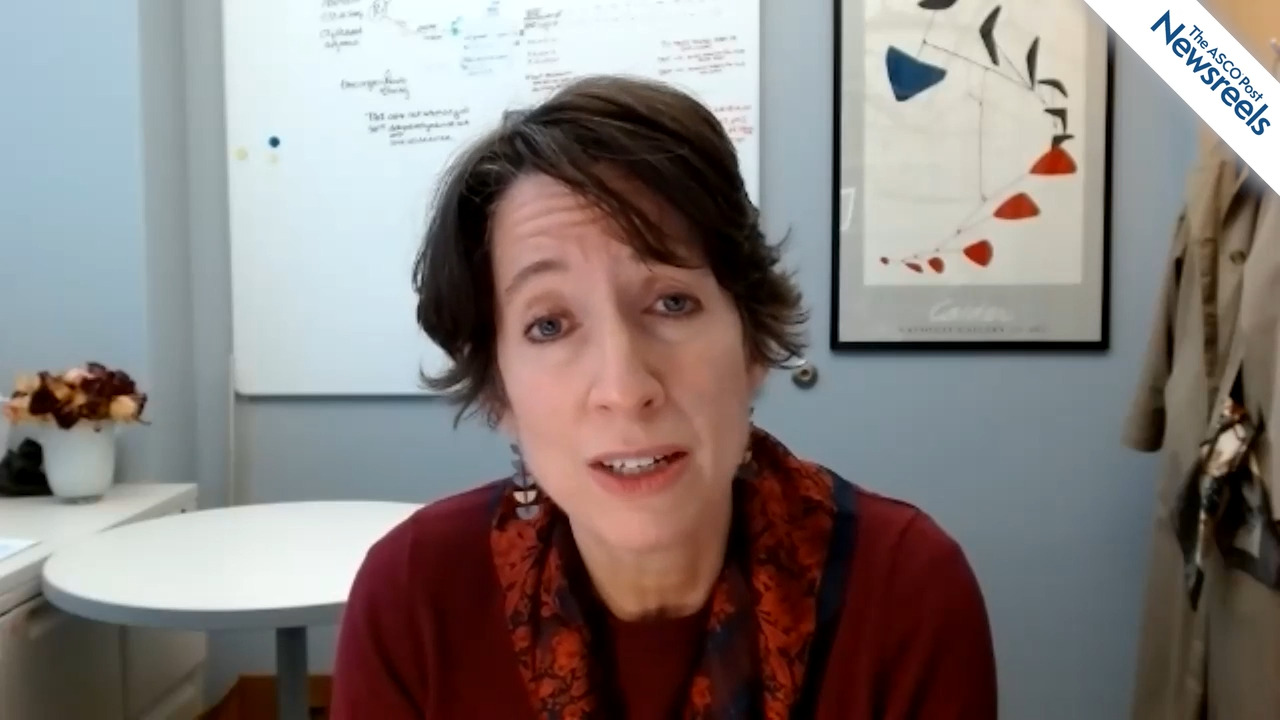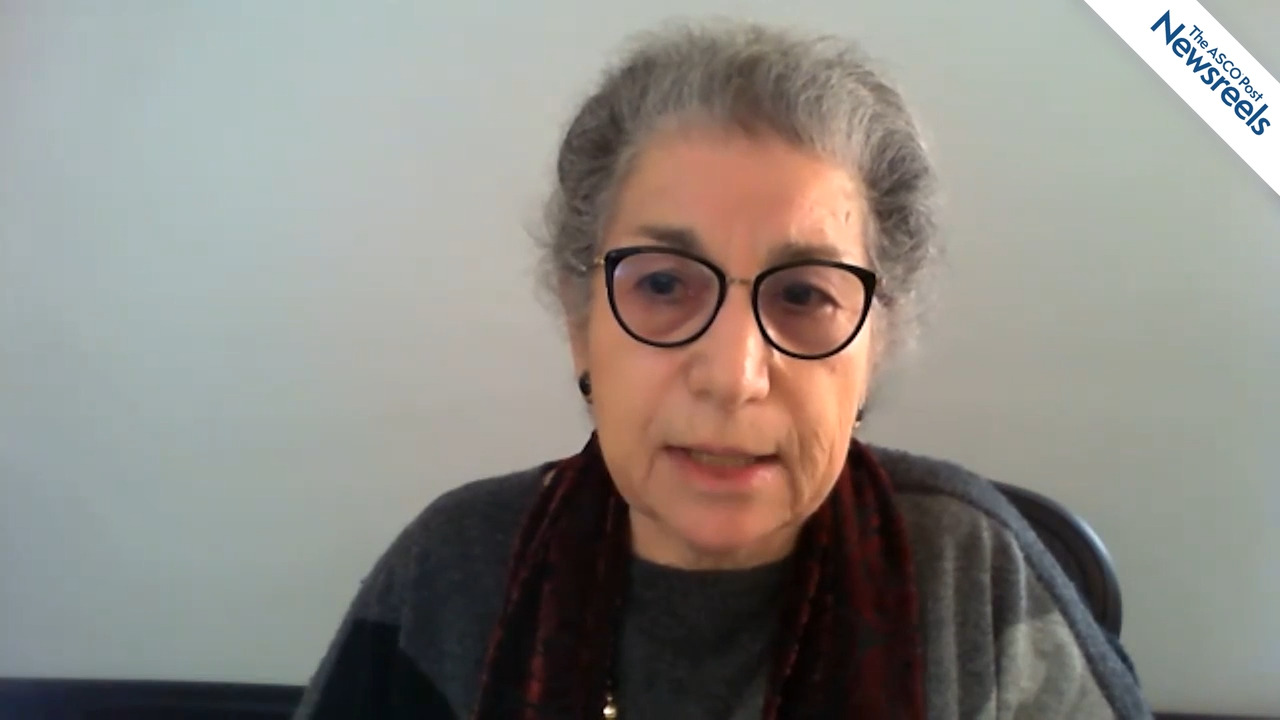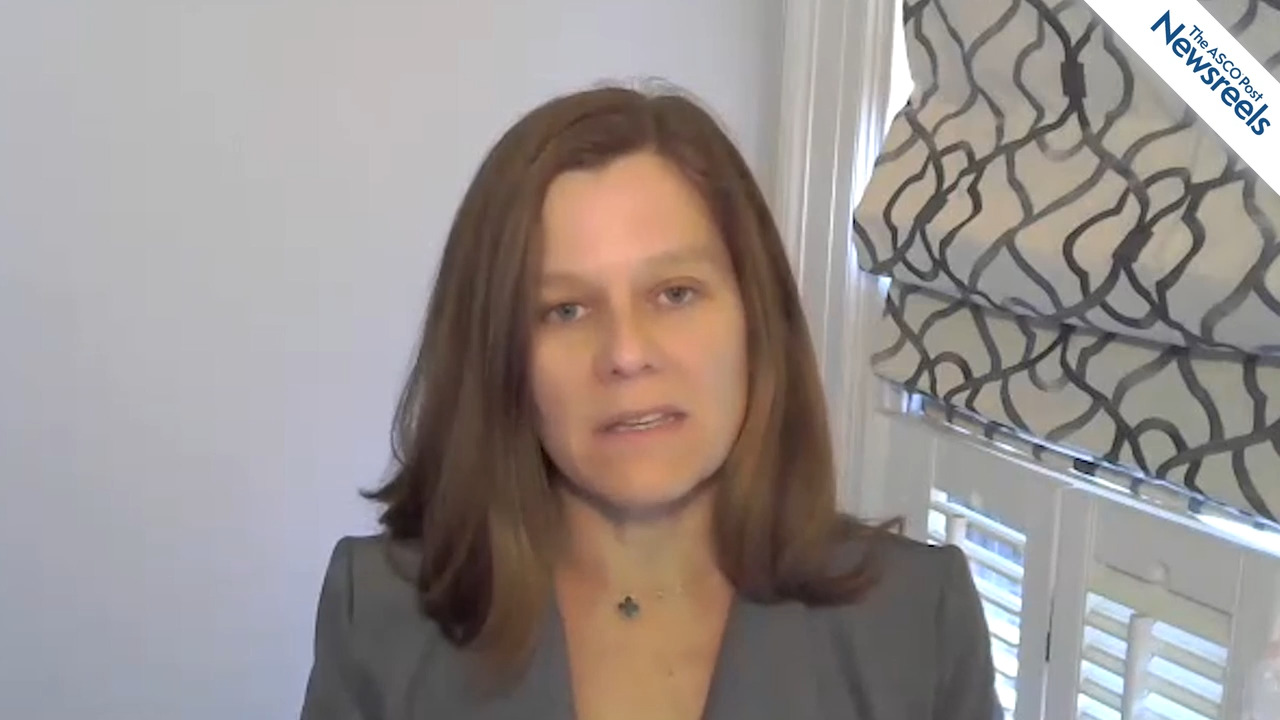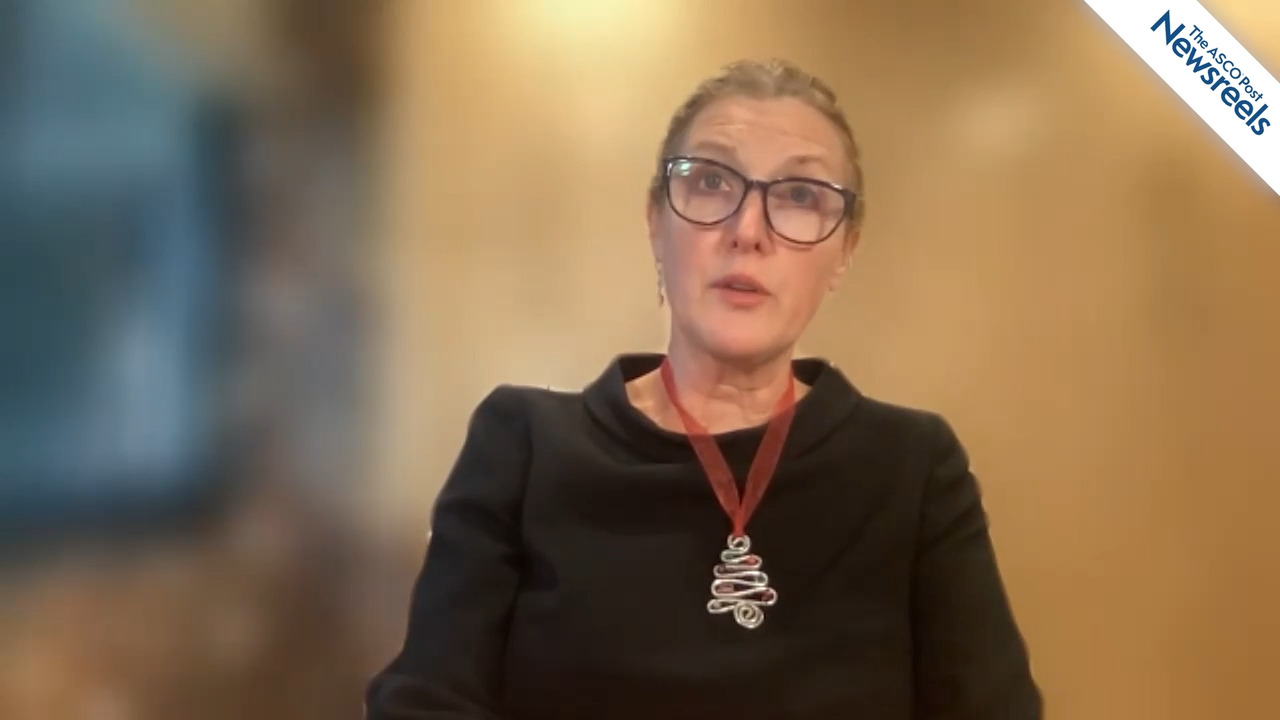Komal Jhaveri, MD, on Triple-Negative and Metastatic Breast Cancers: New Data on Neratinib, Fulvestrant, and Trastuzumab
2021 San Antonio Breast Cancer Symposium
Komal Jhaveri, MD, of Memorial Sloan Kettering Cancer Center, discusses the latest updates from the SUMMIT trial, which explored the combinations of neratinib/fulvestrant/trastuzumab and neratinib plus trastuzumab, as well as fulvestrant alone. The combination regimens appeared to benefit patients with hormone–receptor positive, HER2-mutated metastatic breast cancer who have had prior exposure to CDK4/6 inhibitors, and those with HER2-mutated triple-negative disease (Abstract GS4-10).
The ASCO Post Staff
Meredith M. Regan, ScD, of Dana-Farber Cancer Institute, discusses findings that point to the potential benefits of using adjuvant exemestane plus ovarian function suppression (OFS) to treat premenopausal women with hormone receptor–positive early breast cancer. This conclusion came after 13 years of median follow-up on the TEXT and SOFT trials, during which this regimen was compared with tamoxifen and OFS (Abstract GS2-05).
The ASCO Post Staff
Sara A. Hurvitz, MD, of the University of California, Los Angeles Jonsson Comprehensive Cancer Center, discusses phase III findings from the DESTINY-Breast03 trial, which compared ado-trastuzumab deruxtecan (T-DXd) with standard-of-care trastuzumab emtansine (T-DM1) in patients with HER2-positive metastatic breast cancer. T-DXd showed superior progression-free survival across subgroups of patients previously treated with trastuzumab and a taxane, including those with brain metastases (Abstract GS3-01).
The ASCO Post Staff
Patricia A. Ganz, MD, of the University of California, Los Angeles, discusses quality-of-life results from the phase III OlympiA study of adjuvant olaparib after (neo)adjuvant chemotherapy in patients with germline BRCA1/2 mutations and high-risk HER2-negative early breast cancer (Abstract GS4-09).
The ASCO Post Staff
Ann H. Partridge, MD, MPH, of Dana-Farber Cancer Institute, discusses what she considers to be the most notable presentations at the 2021 San Antonio Breast Cancer Symposium. They include the focus on early-stage disease, especially in the TEXT/SOFT, RxPonder, and KEYNOTE-522 trials, as well as abstracts from the Early Breast Cancer Trialists’ Collaborative Group; and new data and novel therapeutics in the advanced setting.
The ASCO Post Staff
Lisa A. Carey, MD, of the University of North Carolina at Chapel Hill and the Lineberger Comprehensive Cancer Center, discusses findings from a pooled analysis of the MONALEESA-2, -3, and -7 trials. Among the findings was a consistent overall survival benefit with ribociclib plus endocrine therapy for patients with luminal A, luminal B, and HER2E breast cancer subtypes. Patients with the basal-like subtype did not derive a benefit from ribociclib, but the sample size was small (Abstract GS1-04).





